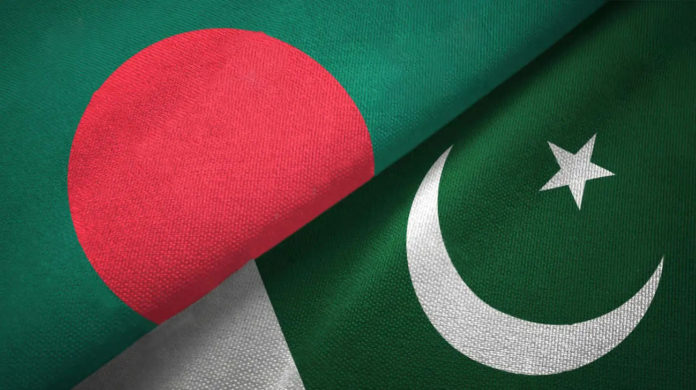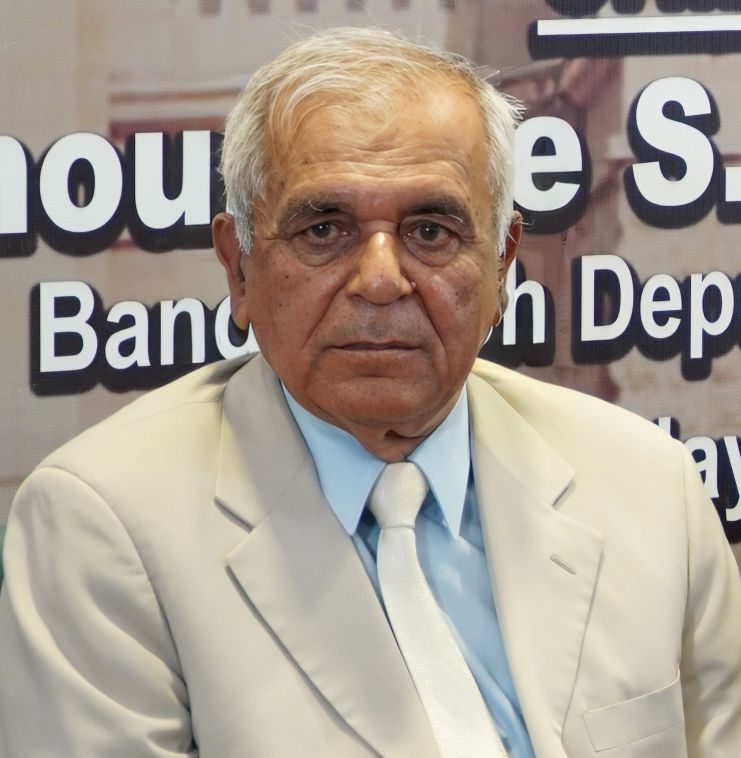
Cdr (R) Sadeed A Malik – Secretary General/ CEO, KCFR: The Deputy High Commissioner of Bangladesh in Pakistan at Karachi, distinguished guests, Chairman and members of the Board of Governors Karachi Council on Foreign Relations. I am Commodore Retired Sadeed Malik, and it is a great pleasure and an honor to welcome the Bangladesh Deputy High Commissioner today.
We usually invite, one of the consul generals at Karachi before our Board of Governors meeting and you very kindly agreed to come and it’s a great honor and pleasure for all of us and especially me that you are over here.
Honorable S.M. Mahbubul Alam is a career diplomat, he joined Bangladesh Foreign Service in 2003. Before that, he graduated from Dhaka University and then later he went to Canberra to National University of Australia for his post-graduation and Master’s degree. In 2003, he joined the Foreign Service, he was appointed in the High Commission at London, in embassy at Paris & Kuwait. Now he’s serving as the Deputy High Commissioner at Karachi. Usually on such occasion, I introduce the guests to Karachi Council on Foreign Relations but we have been so many times together that you are well introduced. So without any further ado, may I request your honor to come and address on Pakistan-Bangladesh Relations. Honorable S.M. Mahbubul Alam, sir.
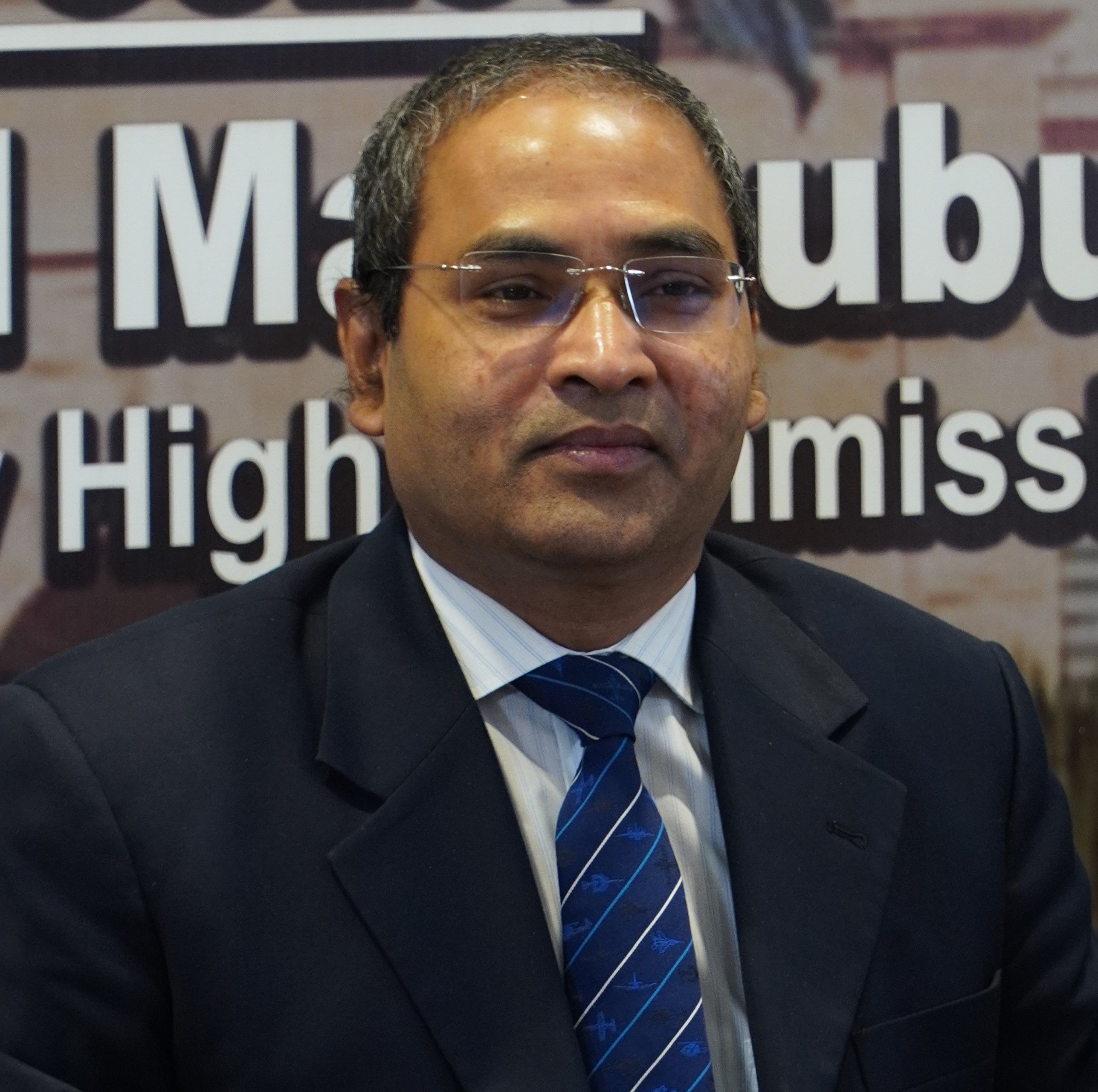
HE S.M. Mahbubul Alam – Deputy High Commissioner of Bangladesh:
Mr. Ikram Sehgal, Chairman Karachi Council on Foreign Relations, Commodore Retired Sadeed Malik, distinguished members Board of Governors of KCFR, distinguished ladies and gentlemen, Assalam-o-Alaikum and very good morning.
In my introduction, you mentioned that I had a career in diplomacy, but before joining diplomacy, I served as the faculty member in a university. So basically I’m an academician in that perspective, so I like to talk in free flow, not by a prepared text as it is.
Today, I will mostly focus on few issues. First of all, it is indeed great honor and privilege for me to be here at Quaid-e-Azam House Museum in Karachi to address this august gathering of members of Karachi Council on Foreign Relations to speak about Bangladesh and issues of Bangladeshis. I will mostly focus on Bangladesh issues with relations to our friendly country and brotherly country Pakistan. Allow me to express my sincere thanks and appreciation to chairman KCFR Mr. Ikram Sehgal and distinguished members for inviting me to this august gathering. Thank you very much.
The year 2021 was very significant in the history of Bangladesh, we celebrated three big occasions. In 2020 was the 100th birth anniversary of the father of the nation Bangladesh, Mujeeb-ur-Rehman. In 2021 was the 50th anniversary of our independence, and thirdly, we also celebrated our graduation to the middle-income country. The fulfillment of all criteria for graduation from Least Developed Country, Bangladesh has been confirmed to be graduated from the LDC in 2026 which was officially announced by the United Nations General Assembly sessions in September, last year.
Under the dynamic, prudent and very wise leadership of the present Prime Minister of Bangladesh Sheikh Hasina, the development of Bangladesh has been taken to realize the dream of Sonar Bangla the Golden Bangladesh of the father of the nation Sheikh Mujeeb-ur-Rehman.
In my deliberations, I will try to focus few issues on Bangladesh and the development of Bangladesh. In the early years of our independence, Bangladesh was a very sad story. Our population was 70 million, our per capita income was 94 USD only. Foreign currency reserve was nothing, poverty level was 82 percent, and life expectancy was 47 percent. Famine and natural disasters was a common phenomenon. But above all, we had one asset; one thing that is our dream, we had our power that was our population.
In those days, our capital asset was only less than 400 million, our agriculture was around 500 million, and our trade was around less than 150 million US Dollars. In such condition and faced by the huge odds, obstacles and challenges, the father of the nation took the helm of the country to begin the journey towards development, to build a country free from hunger and exploitation and a prosperous nation Sonar Bangla, the Golden Bangladesh.
The father of the nation within one year of independence, took a number of initiatives and programs for the reconstruction of Bangladesh. Economic progress, was the mainstay of these programs while functioning of the totally devastated transport system, agricultural, power and industry, these were the priority areas for his initiatives and programs.
I’ll come to our recent trends and recent development issues. Since 2009, the present Prime Minister Sheikh Hasina has taken many initiatives, she has introduced the Vision 2021 to turn Bangladesh to a knowledge based middle-income country by 2021. And the Vision 2041 to make Bangladesh a developed country by 2041, to realize that dream of Sonar Bangla.Sonar Bangla is a very popular word in Bangladesh, the Golden Bangladesh as I defined free from poverty, free from illiteracy, free from exploitations, with full-fledged economic developments. Our prime minister introduced a 100-year plan 2100 to make progress of Bangladesh a sustainable one.
Prime Minister Sheikh Hasina also took a number of pragmatic initiatives and infrastructural mega projects to attain the goal of these visions. I would like to take this opportunity to mention few of her visionary projects and programs. “One House One Farm” project, every house is a farm. During even deep recession, we are sufficient in our food because every household is a farm. They are producing their own foods, so this is a huge initiative and successful one. Shelters for everyone, to mark the 50th anniversary of our independence as well as the 100th birthday anniversary of the father of the nation, Prime Minister Sheikh Hasina has taken the initiative to build new houses for the homeless on the land of the government “Khas Land”. So this is how she is making the country free from homeless.
Digital Bangladesh, it’s a huge stride and a huge drive, it is totally a digital country. A poor lady in a village is now able to operate the mobile phones, she can communicate with her son living abroad. So they are learned in terms of digital issues. Educational support program, empowerment of women, and electricity to every house I’ll elaborate these issues later on. Community Clinic and Health Issues, Social Safety Network, Enhancement of Investment and Climate Protections and so on.
Her government also took a number of interactions and mega project, as I mentioned before. For industrialization, the government has taken huge initiative to establish 100 specialized economic zones across the country, including hybrid tech in Bangladesh. Out of 100 specialized zone, almost 97 of them are to some extent in process of being operational.
During the recent times Bangladesh has been successful in different areas, we have attained the Millennium Development Goals, and some of the goals are already attained before the deadline. We are always in the right track to achieve the Sustainable Development Goals, we have attained the goals of Vision 2021, and we have become a low middle-income country even before the time. We have got the confirmation of the graduation from LDC in 2026 which is already announced by the UN General Assembly.
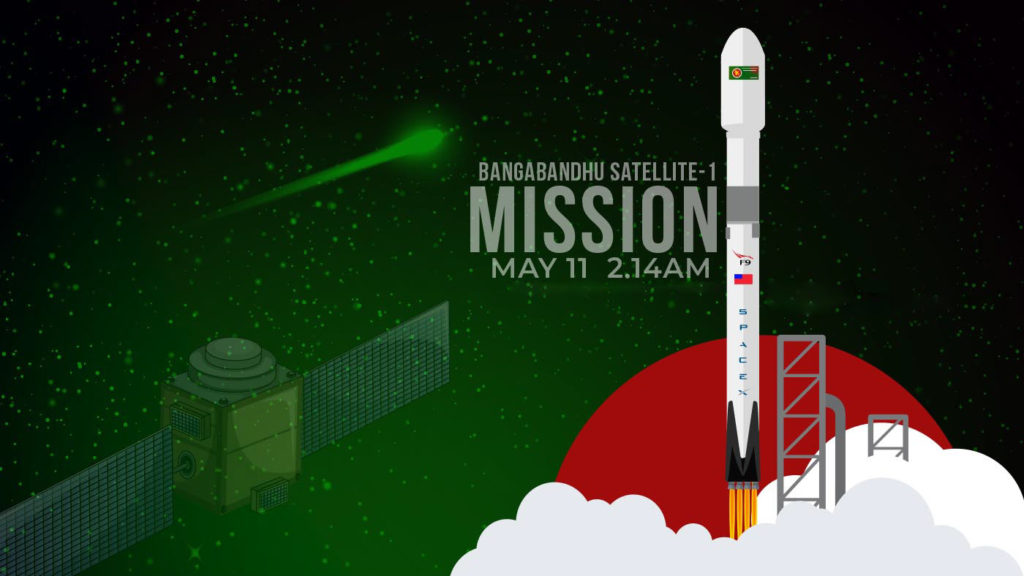
Bangladesh has successfully launched the Bangabandhu Satellite 1 to join the prestigious club of satellite countries. We have settled our land boundaries with our neighboring countries, we have also settled our maritime boundary demarcation with our neighboring country India and Myanmar. We have gained 118,000 plus square kilometers of areas for Exclusive Economic Zones in the Bay of Bengal.
During the Covid time, it is a trauma for all the countries across the world, but our performance in tackling the issues is extraordinary. We are among the few countries in the world who very appropriately and timely took the initiatives to face this menace. We could organize the vaccines from different sources, even though it’s a small country with 180 million people almost, but our casualty rate is much less than many developed countries in the world.
I was posted in Paris as Minister Political, I have seen what happened in my station there, which is very heartbreaking. In the newspapers headlines were very shocking, everyday so many lives are being lost, and dealing with these issues, they had to give up some areas to focus on other areas in tackling these issues. So this is how it shows that all the countries who face these difficulties but we did well, and last couple of months there have been zero deaths in Bangladesh. So this is a recent success in dealing such a huge crisis.
In terms of our education, I mentioned that we are doing quite well, our literacy rate is now 75 percent plus, but at the same time our enrollment is almost 100 percent and this is because of the recent initiatives taken by the government. Since 2010, our government is distributing free textbooks to all the students in the primary and secondary levels. Every year, we are distributing around 400 million copies of textbooks for free, and this is done on the very first day of the academic life in Bangladesh, academic year begins on first of January. So on first of January, the books are distributed among all the students. So this is a landmark initiative and even in developed countries it is difficult to distribute such a big number of textbooks to their students for free. As a country like Bangladesh, we dreamed and we materialized, Alhamdulillah.
100 percent electricity coverage across the country. On 21st of March this year, our Prime Minister declared that Bangladesh is 100 percent under electricity coverage, all the households, even in the rural remote areas, even in the islands in the Bay of Bengal, in the mountainous areas, in the Rangamati or other remote areas, are now under the cover of electricity, and I would like to highlight a few statistics on this. In 2009, our power plants were only 27, but now it is 150. Our power generation capacity in megawatts was less than 5000 megawatts, but now it is 25,000 plus megawatts. Height of the generation was around 3000 in 2009, but now it is 13,000 plus. Total transmission line in 2009 was 8000 kilometers, but now it is 13,000 kilometers plus. Population with access to power as I mentioned is now 100 percent, but in 2009 it was only 43 percent.
In 2009, per capita generation was 220, but now it is 560. So, this actually reflects our drive, our initiatives and these also inculcate the impact that economic success is not only seen in the cities or the developed part in the country, but not excluding the rural areas as well. A very recent phenomenon, I cannot leave this opportunity to inform, the “Padma Bridge” this is a success story of Bangladesh, and this is a symbol of our pride. Today is 23rd of June, day after tomorrow, 25th of June at 10 am. In the morning, our prime minister in presence of more than 1 million people will inaugurate this bridge.
There is a multipurpose road-rail bridge across the mighty river Padma, it is the main distributary of the Ganges. It will create a huge opportunity for the vast majority of the country. It will connect the southwest of the country with the northern and the eastern regions. The bay is scheduled to open as I mentioned 25th of June this year, total length 6.15 kilometers, it is a very mighty river, the depth of water is 122 meters. The estimated cost was 30,000 crores in Bangladeshi Taka, in US dollar it is 3.6 billion US dollars, huge budget. But very striking thing is that Alhamdulillah, the total cost was borne by the Government of Bangladesh through the resources of Bangladesh, this is done by the money of Bangladesh government. So this is the pride, Insha’Allah if we try, if we dream, we can.
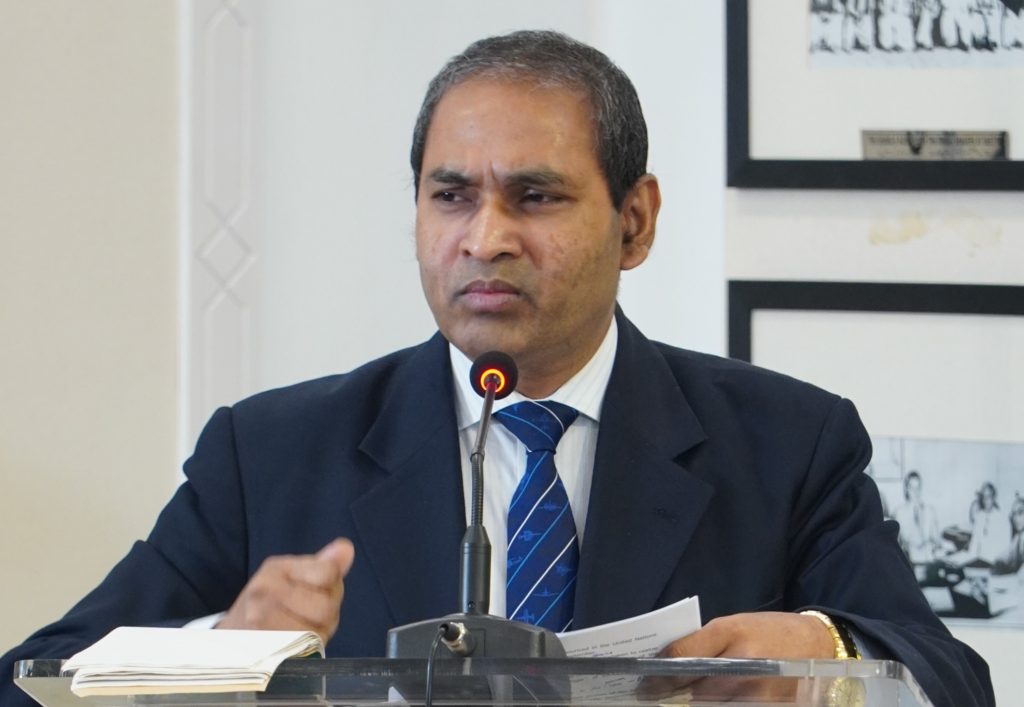
As I mentioned at the very beginning of my speech, we have a huge manpower, we have a very robust dream and we are deeply committed to achieve our dream, and In’sha’Allah we can, and we have proved it many times in our history. Padma Bridge is expected, to boost the GDP of Bangladesh by 1.5 percent to 3 percent, so as a Bangladeshi, I feel proud that we could do this mega project. I have a few more interesting points or issues to share with you, not that substantive in such discussions, it is formal.
In 90s our public universities were less than 10. But now there are 170 total universities, we have 53 public universities, we have 100 plus private universities, we have two international universities. Every year, our present government has taken initiative to establish 3 to 10 public universities. Every year in the parliament, there are so many bills passed, we see in the newspaper that new Act on five public universities is passed in the parliament. So this is how actually we are focusing on our education, not only in the grassroots level for the literacy rate but also making the human power, a very potential one.
In early 90s, we had only seven medical colleges, but now we have 112 medical colleges which is developed in a very short length of time, and we could achieve it. Every year we have around 5000 individual doctors passing out from the medical colleges, so these are actually fueling our human resource.
I will now focus on few issues on our image abroad or image in the country. In the traditional time, we are a developing country, but our garments are the second, sometimes first in the world. I served more than half of my time in western countries i.e. Europe, London etc. If we go to any high brand shop after buying, when I bring it to my home, my children see; where it is made in? And they found that it is made in Bangladesh. They have bought this as a product of Europe, but at home they say it is a product of our home. It’s pride for them, I feel they are thinking not the way I think but the way they express, I feel proud. This is actually a simple token that this is our pride, this is our achievement.
Pharmaceutical, sorry to share my personal detail, I’m a pharmacist and I am graduated from Dhaka University as a pharmacist. In Bangladesh at early 90s or before, we had to import almost all the medicines from abroad. But now we do new research, our medicines are meeting 97 percent plus of our domestic need. We only import less than 3 percent from abroad, we have 300 plus pharmaceuticals and if you see, I’m sure you’ll be impressed by the state-of-the-art manufacturing units, there are many companies you might have known some name i.e. Beximco, Square, Incepta, Glaxo SmithKline so many others. They’re doing extraordinary job and we are exporting our pharmaceutical products to over 70 plus countries. A country like Bangladesh, exporting medicine, it is such a sensitive item consumable, but we are exporting to 70 plus countries including western and developing countries. We import our raw materials, but we do export our finished products to these countries i.e. Germany and many other different countries.
Shipbuilding, we are best in shipbuilding and this is a role model in shipbuilding. There are some others challenges, but we are doing it. I must have to say the role of expatriate Bangladeshis, we have 14 million Bangladeshi working in more than 150 countries and the professionals who are overseas, their contribution is tremendous, they are working with the highest team, their performance, and their role is very laudable. Our people who are abroad, they’re doing business, they’re contributing to their economy, to our economy. In London or in the greater UK, we have 14,000 plus restaurants run by Bangladeshi people and this is a brand there. In the airliners you will see what the touristic site or place to visit in London or UK? You might have seen the name of some restaurant run by Bangladeshi people.

Apart from them, they are also contributing to their politics, to their economy to the culture, to their societal development, they are an integral part, they are being assimilated and Pakistan is also doing well in the expatriate Pakistanis. In London, Indians, Bangladeshis, Pakistanis are a huge community, they have good relations.
Bangladesh as I mentioned, the workforce,114 million, those who are working in the Middle-East or other countries, they are not that literate, but their contribution is highly acceptable, highly acclaimed in their society. I was posted in Kuwait. The work they are doing, they have huge expertise, whatever job they are doing, they got the confidence and faith of the employer. And they know the Bangladeshi people who are working with them are very hardworking, very committed, very honest and very dynamic. They are learning the foreign language in one year or two years. I have taught in university, I studied at two three universities but I could not speak as fluent French as the literate person living in France because they are so talented, it’s a talented nation. I have heard these words from many people, they said you are very talented nation, your people working with us are very talented, and they can grab anything quickly. So our initiatives are being materialized because of this, If we wish, we can do, and this is a tremendous potential.
Bangladesh is doing extraordinary job in international relations as well as in international organizations. Many Bangladeshi diplomats, and professionals are working in the international organizations. We are holding very big or good positions in many organizations including United Nations in its specialized organizations. In the election of different international organizations, I have seen frequently recurring, we are being elected. I was in London, and we are a member of group B in the International Maritime Organization. We are member of the executive board for many years. In the UNESCO, we are a member of the executive board, everywhere we are candidate, we win.
There is regional grouping. South Asian group or East Asian Group. The membership or the candidates from the group said that when you are a candidate, you win, this time you please give us chance, so this year we did not float our candidates. So this speaks of our potential, our image, and our goodwill, Alhamdulillah.
Pakistan is doing extraordinary job in peacekeeping contributions in the United Nations, and similarly we are number one or two in contributing the peacekeeping troops. We have served more than 54 missions in 40 countries. Altogether, we have contributed 160,000 plus peacekeepers during this time, so this is a huge contribution from our side and this is a huge credit for us. Their contribution, their commitment, their knowledge and their professionalism is extraordinary.
I was in Kuwait for three years, we have a military contingent called BMC, Bangladesh Military Contingent in Kuwait. They are doing an extraordinary job in Kuwait, many others are working in Kuwait but the role Bangladeshi Contingent is playing is extraordinary. Reports from any high-tech methods or any sources including developing agencies or countries, our report is number one; if it is okay, everything is okay, even anybody can visit there. So this is the professionalism, this is the expertise they have shown and the credit goes to the commitment and professionalism of our patriots.
The training that military academies are doing is world class. National Defense College, Staff College and Armed Forces War Colleges and Military Academy, these institutions are training our officers, soldiers, and at the same time the foreign armed forces officials are also being trained in these academies including from European and other developed countries. So this also speaks of our capacity, our excellence.

BIPSOT, Bangladesh Institute of Peace Support Operation Training, all the trainers, all the peacekeepers who go abroad for peacekeeping assignments, they are being trained there. Not only our soldiers, the foreign peacekeepers also are being trained here so this is a cause of pride for us. This time we faced two very tragic incidents in Bangladesh, a fire in Chittagong and floods in northeast region of Bangladesh.
We have a National Disaster Management system that works efficiently alhamdulillah. There are many developed countries that are unable to effectively deal with climate disasters. In the Ministry, I was Director East Asia and Pacific. I looked after Japan, South Korea, China, Australia, New Zealand. We had meeting with the Australian counterparts and they wanted our expertise, they wanted to see the best practices we have, they wanted to learn from us in terms of disaster management as they also acknowledged that we are doing an extraordinary job.
Even though we are a developing country, we have resource constraints, but since 2007 onward we are giving shelters home of 1.1 million forcibly displaced Myanmar nationals in Bangladesh. this is a huge burden for us. The role that we are playing has enhanced our image abroad. Many developed countries; they are sealing their borders, but what we did, we opened our borders for the causes of humanity. This also again speaks of the leadership of our Prime Minister Sheikh Hasina. We could have closed our borders, but we are a peace loving country, we are an international law-abiding country. Our image in the international forums is positive because of our initiatives, because of our dynamism there, because of our vibrancy. Only few days back, one of our senior diplomats was appointed Under Secretary in the UN Headquarter in New York. Every two years we organize the Asian Art Biennale, distinguished artwork as well as artists from more than only 120 countries take part in in the exhibition and we do organize it for many years, so this is also developing our positive image there.
And one last point, I want to focus on, when I was in Paris since 2019 to this year, I had the honor to be a part of the greater initiative. UNESCO has established a prize, and the name of the prize is UNESCO-Bangladesh Bangabandhu Sheikh Mujibur Rahman International Prize for the Creative Economy. This is a prize from UNESCO but we do contribute. This is a 50,000 USD prize and it is established as a token of celebration of the UNESCO for creative economy. This is also a part of the celebration of the 100th birth anniversary of the father of the nation. This is also a part of the celebration of the 50th anniversary of our independence, our golden jubilee. This is a UNESCO prize but in the name of our father of the nation. The applicants are from 193 countries. When it is circulated by the UNESCO, this is being circulated at the same time with all the 193 countries by the Ministry of Foreign Affairs, by the National Committee on Education, on UNESCO so there is a widely circulated issue and anybody doing this job can apply, so this is a token that the name of Bangladesh, the name of our initiative is discussed. This is not enough in itself; all the members of the UNESCO have to endorse and ratify this proposal.
Lastly, I want to focus on a few points on our prospects. Bangladesh has a very promising potential, as I mentioned hundred percent electricity coverage, we have gas, because of the 100 economic zones, it is a very investment friendly environment prevailing in Bangladesh. Any country, any company can come forward to work with us to develop our economic conditions, in our economic zones many countries have their own specializations, Korea, Japan, India and others.
The business people in Pakistan, the investors in Pakistan, they can come forward to invest in Bangladesh, to do business with Bangladesh. The business environment is quite attractive, so you can take up this opportunity and we can in’sha’Allah develop together. We are a peace-loving country, we believe in this and peace comes with different elements; through development, literacy, good health everything is prerequisite for absolute peace. In’sha’Allah this is the opportunity I want to promote that the business people in Pakistan can come forward and our interaction would be very worthy to go further. You have huge potential and we do as well. Once again I would like to express my heartfelt gratitude and thanks to Chairman Karachi Council on Foreign Relations and all the distinguished members of the Board of Governors and other dignitaries, ladies and gentlemen. This is once again my opportunity and honor to be here today. Thank you once again. With this, Allah hafiz.
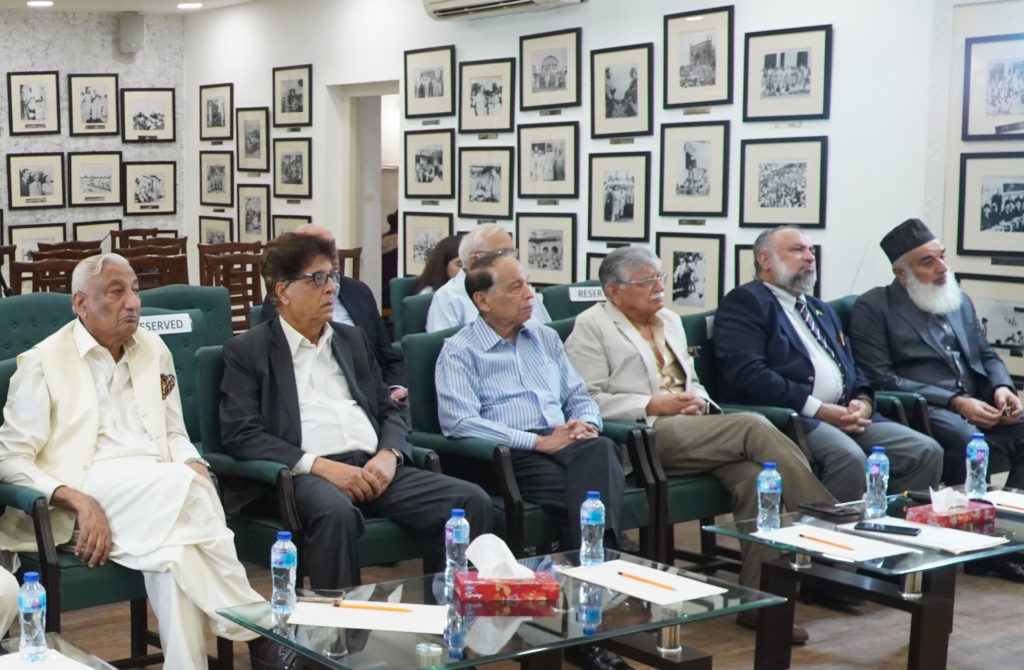
Cdr (R) Sadeed A Malik – Secretary General/ CEO, KCFR: Sir, it was a pleasure to learn about the history of your progress and development which you have ma’sha’Allah reached – wonderful – it was a great pleasure for all of us. Just one question, before we start the rest of the questions that when the two brothers parted, at that time your population was seven and a half crores, 70 million and ours was 60.5 million, and now you are 160 million and we are 23 crores, 230 million. How did you really achieve this and that is the basic reason which I think is the cause of development of Bangladesh.
HE S.M. Mahbubul Alam – Deputy High Commissioner of Bangladesh: The question is very relevant. In 1971, our population was 7 million, now we are 160 million plus, you compared with yours, I can focus on how we deal with our issues, as I mentioned the achievements in different areas; 100 percent literacy we could not achieve, our literacy is not hundred percent but enrollment is hundred percent, our literacy rate is around 75 percent, life expectancy 72 percent plus, I also mentioned digital Bangladesh, so actually these are recent phenomenon but in terms of the population growth – population control – education is a must, because the policies taken by the government directly or indirectly impacted on controlling the population.
Now the unitary family exists and they have to take care of their own families so they think if the population is big it will be an issue. There were policies related to family planning since 1980s, that worked and that has given the results as of today and the people are now educated. They know their betterment, so this is sort of a result of direct or indirect impact of policies, they think that if their family is smaller, they can afford good health conditions, they can afford better education, they can send their children overseas for their education they can lead a better-quality life. This is actually the incentive directly or indirectly that contributed to this achievement. At the same time, the government has introduced programs and these programs cover every village, every household. In our government service, there are 29 cadres, so one of the cadres is family planning. This is a highly focused initiative by the government, so, ultimately over the years this is the achievement in this sector. Thank you.
Question: Your excellency, it is my honor to see you again in one week so I have two questions. Number one; what is the volume of trade between Pakistan and Bangladesh; is it growing or is it stable and what can be done to grow this volume on both sides during the period of your stay here in Karachi. Second question is, in one word what has Bangladesh done that it has increased its GDP beyond Pakistan and India, one of the best in the developing countries please share your views about that.
HE S.M. Mahbubul Alam – Deputy High Commissioner of Bangladesh: Thank you very much. I’m not very good at these statistics but I can figure out that the trade volume is increasing between Bangladesh and Pakistan, even over the years it is increasing and in total trade volume we are lagging behind, you are exporting more to Bangladesh but we are exporting less to Pakistan. This is a two-way journey so you are doing better, we need to do better, if we do better, if we can come close to you it will be doubled. Now it is less than 1 billion, around 800 million plus, I’m not very sure about the exact figure. Vast majority of this 800 million is yours, so if we can try to double, it will be 1.5 billion. If we contribute the same amount you are doing, so we can work together. I am here only few weeks by this time I had the opportunity to know few of you who are doing a tremendous job in our trade and investment between these two countries.
I can see a few known figures. I have been to the Karachi Chamber of Commerce and Industries. I had been meeting twice with the dignitaries, another with the High Commissioner in the week before so I could feel that we can promote our trade and investment and business. I would like to emphasize on your initiative, and at the same time our initiative.
As I am here sitting with you in Karachi, we are very positive In’sha’Allah we would like to extend all support, whatever we can, will be there. There are some issues regarding the movement that is a bilateral issue and in’sha’Allah it will be working well. So, you please think to visit Bangladesh with business initiatives, our people will also do exchange visits and this will ultimately directly or indirectly impact on increasing the trade volume. And you mentioned GDP, in the recent times as I mentioned there’s been so many initiatives taken by the government. We spent 30,000 crore Taka for the construction for the bridge, it is a visible project we see, but what is the impact on GDP? We are expecting 1.5 percent to 3 percent increase in GDP. Our GDP is over 10 percent for quite a few years, even in the corona time our GDP was around six percent, so this is actually a good thing that we are going through, and there are some secrets as to why we are able to continue this. As I mentioned one home, one farm, so our GDP is coming from the grassroots level. Everybody is self-dependent, they do not need to depend on others. Even when a huge recession occurs, our people are producing their own food, so no matter what they have their own cattle, own fish, own food so it’s okay. So ultimately different projects and programs contributed to the enhancement and sustainable GDP of our country, thank you very much.
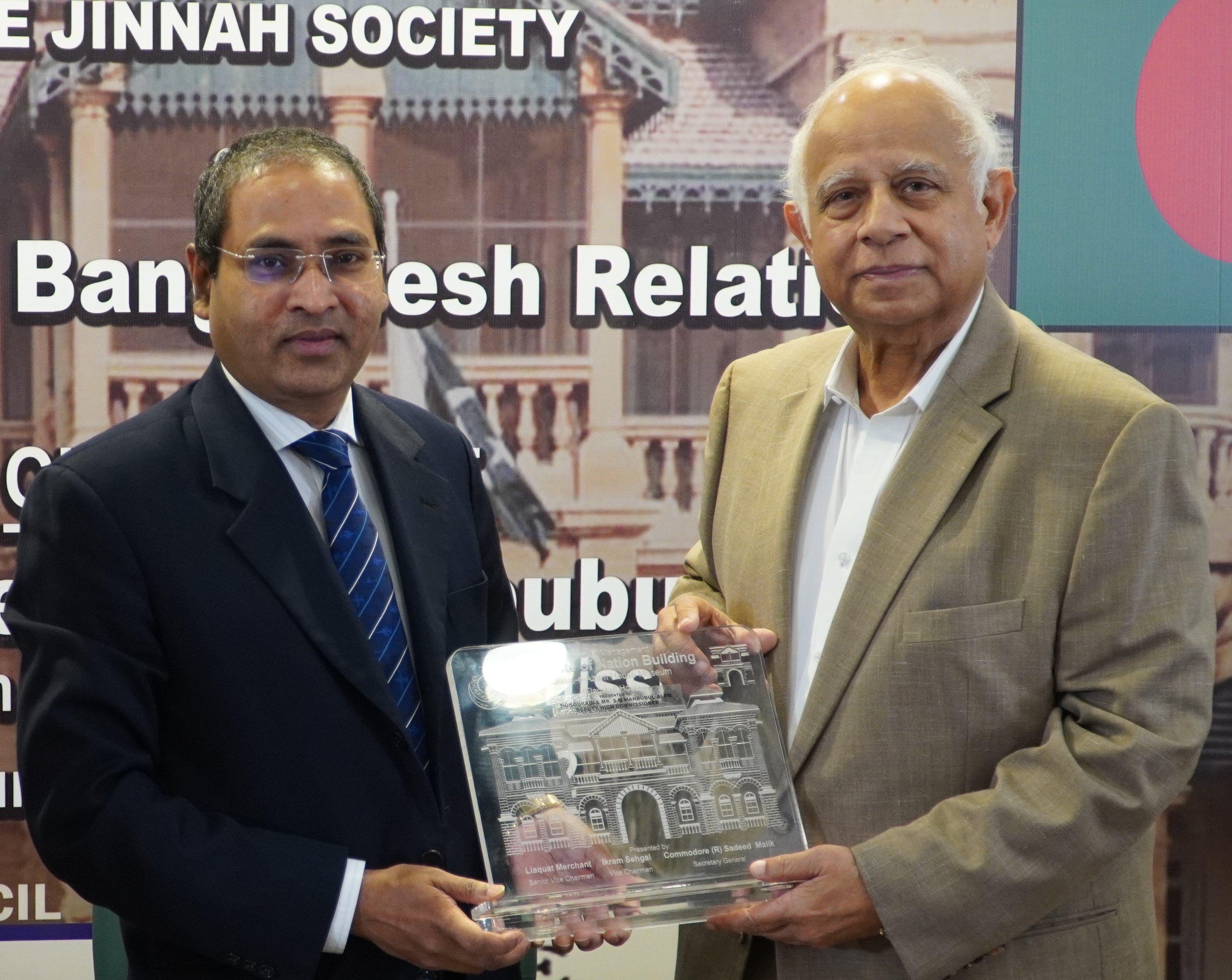
Question: Assalam-o-Alaikum Excellency, my name is Dr. Shehzad Arshad. I’m the Member of Board of KCFR. Also, I am serving as the Honorary Consul General of Kingdom of Lesotho in Karachi, Pakistan for last 20 years and I have been the Chairman of All Pakistan Garment Exporters Association for six times and I’ve been the Chairman of Textile Committee for Federation of Pakistan Chamber of Commerce and Industry for fourteen years. Excellency, just to give an example, as far as Lesotho is concerned, we have been welcoming investors from Korea, from China, from Pakistan and we are proud to say that from Lesotho we are the second largest exporter of clothing from African continent to North America but contrary to that, I being the stakeholder of textile industry in Pakistan I am also myself one of the largest exporter to Bangladesh and I have been to Bangladesh for more than 30 times but what I have experienced, as you just said, that you are welcoming Pakistani investors in Bangladesh so as for the experience what we have seen in last three decades; the companies that have gone over there didn’t get so much incentive and facilitation as compared to what we are giving in Lesotho and that is probably one of the reasons that the companies which have gone from Pakistan to Bangladesh are not that much successful as they should have been. So Excellency as you just said that now special economic zones are being formed and it’s a very good news that government of Bangladesh is welcoming Pakistani investors there and definitely we do want very much to go over there and to establish our units so I’ll be very much thankful to you if you can elaborate on that now or later on, you can send some details so that we can forward those details to our relevant associations, to our relevant chambers and to the Federation of Pakistan Chamber of Commerce and Industry so that the message could be spread among the textile business community of Pakistan. Thank you.
HE S.M. Mahbubul Alam – Deputy High Commissioner of Bangladesh: Thank you very much. The scope for investing in EPZs in Bangladesh is open for any country, the policy is universal, the fiscal or non-fiscal incentives are there for everybody so there is no restriction for any country, so any investor, any industry or any country can come. Thank you very much.
Question: My simple question is about the visa policy of Bangladesh for Pakistan. There are businessmen who would like to visit Bangladesh and as you have said you are inviting the investors from Pakistan to Bangladesh so I’d like you to elaborate a bit on the visa policy for Pakistanis, thank you.
HE S.M. Mahbubul Alam – Deputy High Commissioner of Bangladesh: Thank you very much, for issuing visas we have to go through a process and sometimes it takes a little more time but visa process is smooth, officials at the Deputy High Commission in Karachi are very positive and proactive in dealing with these issues. We are taking up the issues with the concerned people so that the process is as fast as possible. So, we are very positive in expediting these issues and we’ll try in the upcoming years in’sha’Allah, thank you very much.
Question: My question is about the foreign policy. America was trying to acquire some land and it has imposed sanctions on Bangladesh. How do you manage your foreign policy?
HE S.M. Mahbubul Alam – Deputy High Commissioner of Bangladesh: Thank you very much, very academic question and very tough question. Thank you very much. You know our father of the nation Mujeeb-ur-Rehman had the foreign policy of friendship with all, malice towards none. That is the part of our foreign policy since our independence and still that is in practice and that is the core of our foreign policy. This policy actually speaks what should be the guideline or guiding principle of our relations, so whatever the factors, whatever the dynamics if you fit in this frame I think anyone can get the answer. Thank you very much.
Cdr (R) Sadeed A Malik – Secretary General/ CEO, KCFR: Thank you very much sir, for addressing us and telling us about the road to development of Bangladesh. We were really pleased, and of course for responding candidly to our questions too. May I now request the Chairman for his concluding remarks. Sir.
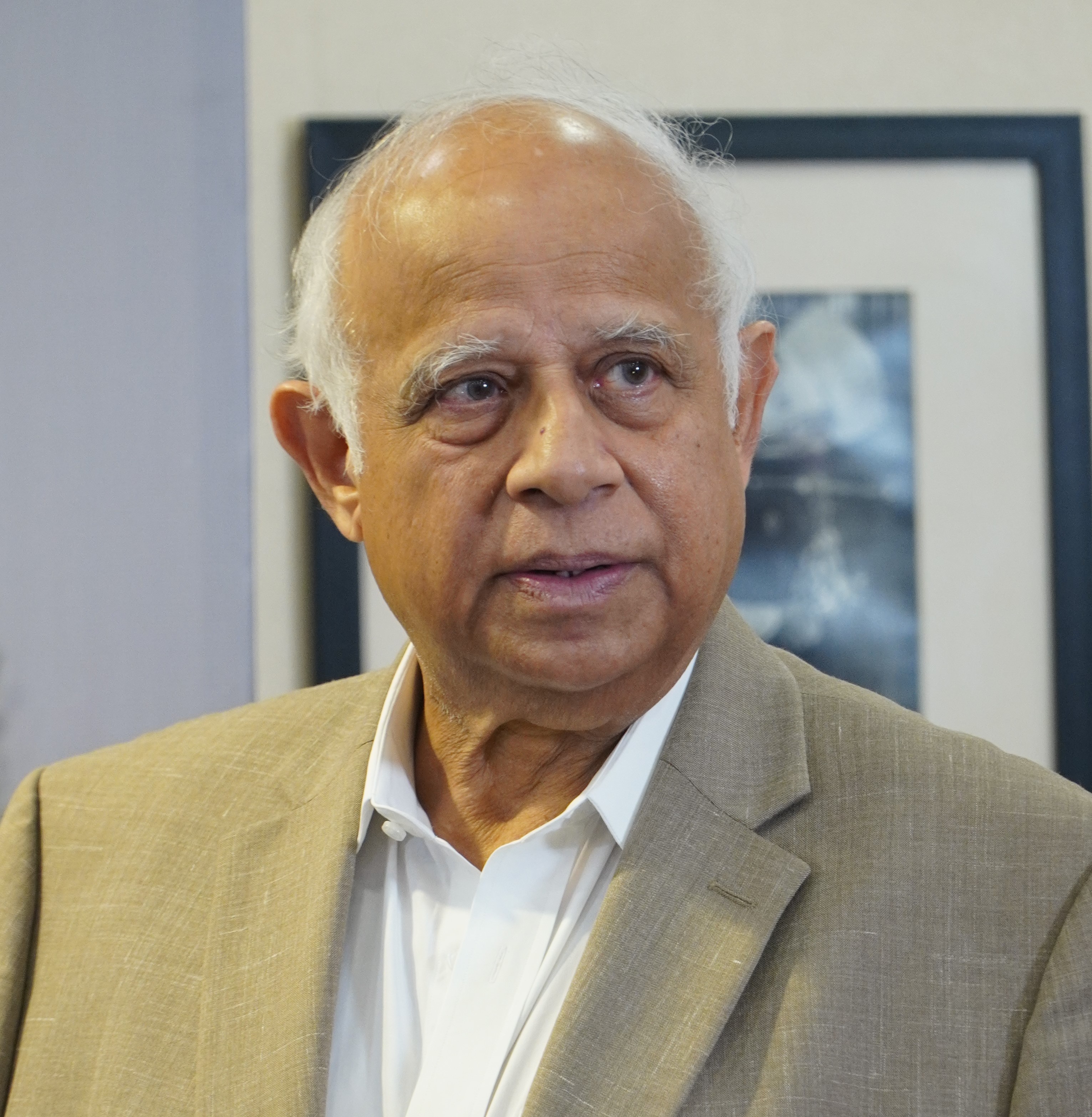
Ikram Sehgal – Chairman, KCFR Honorable Deputy High Commissioner, members of the Board of Governors, and honored guests, we’ve had a very extensive briefing on Bangladesh, something that was really needed because we do not have much of coverage of our friendly countries because mostly the media relies on spreading bad news rather than good news. So here we have seen some good news and I think it is remarkable that 80 plus years after the Pakistan resolution and 80 years after the Quaid-e-Azam bought this place, we have the Bangladesh Deputy High Commissioner addressing us here in this location, so by itself it is an honor.
One can only say that development in Bangladesh has been fantastic, there’s no doubt about it, and there are many factors contributing to it. It is the political will, it is the governance mode, it is the fact of decentralization of powers to the local bodies, which we have in theory but not in practice, and I think a very stated aim, because when the Padma bridge was coming to fruition, there was a lot of talk about aid or loans etc. and ultimately because of the vital nature of that bridge, because it really connects southwest Bangladesh to the entire east not only to northeast but the entire east of Bangladesh. So, when you look at it, and the fact that they did it on their own is a remarkable achievement, and did it on time, that by itself is a remarkable achievement. After all, six kilometers, three miles, in those currents, the people who have been there will realize that it takes a lot to make that bridge at 122 meters depth, it is not an easy task by any means.
I think one of the reasons for development is financial inclusion. Bangladesh very early realized that without the financial inclusion of the deprived, and without women empowerment, this could not be possible, unless the women got into the economy, contributed to the economy, there was no way that they would remain the international basket case that Kissinger had labeled them with, right, I think Kissinger should be swallowing his words by now and he’s still alive to swallow them, actually. Now when you say about guarantee for collateral etc. obviously when you’re talking about financial inclusion there are various ways and there was no collateral and the way they did the collateral was very innovative, that they used to give the loan to a group of people, group of 10 or 12, so even though the loan was individual, the group was responsible for the repayment of each individual, it was very innovative.
There have been a lot of talks about trade. We have complementary economies, we require jute for our jute mills, we require tea and we especially used to like, now it has changed a bit, the low grown tea, thick tea, actually the other day one of our esteemed politicians asked us to have less tea, without realizing that tea and chapati is a form of food in our country, tea and chapati. So, you know, he was doing something which Marie Antoinette tried, let them eat cake if they can’t have bread. So the point is that tea is something that really can come here in large quantities and then textiles can go from here, because you have a lot of garment factories, you have one of the largest manufacturers of finished garments in the world, you’ve done very well there, and that is one of the basis of your economy. I think our base is textiles, and then of course I know that you import a little bit of rice, Sindh parboiled rice used to go from here, Sindh joshi rice used to go from here, and then of course cotton for your textile mills. A lot of it used to go, the type of cotton that you used in your textile mills went from Pakistan. Of course, we used to import a lot of newsprint from Khulna Newsprint Mills, we used to import paper from Chandraghona Paper Mills, so if you look at it, even finished jute goods, hessian bags, we used to do a lot, but the most remarkable thing you said was about pharmaceuticals, that is amazing that 97 of your pharmaceuticals is now actually made within the country.
I want to address two, three very sensitive issues and one of them is about stranded Pakistanis there, I think it is on the conscience of all Pakistanis that anybody who calls themselves Pakistani today, or 50 60 years later, we do not say that yes you can come to Pakistan, that is something that stranded Pakistanis should be given the option to come to Pakistan. And similarly there are about 1.6 million Bangladeshis, they are not Bangladeshis, they are Pakistanis, their children have been born in Pakistan, they are part of Pakistan, I think we need to settle this issue once and for all, that stranded Pakistanis who want to come here or want to stay there will stay there or come here, and Bangladeshis who are here already and their children are here, they should be given the right of citizenship, if we can have three million Afghans living and settled here, and the second largest Afghan city in the world is Karachi, stranded Pakistanis should be allowed to come to Pakistan.
Other than that, Excellency, the sensitive issue is why should we have visas between the two countries, so let’s not have visas, another sensitive issue is why we have tariffs between the two countries if we did not have tariffs between the two countries, can you imagine the quantum of trade that can go on, so no visa, no tariffs. In the end I want to turn to my friend Kaleem Farooqi who day in night out would ring me up at two o’clock in the morning and say let’s revive the Pakistan Bangladesh Friendship Association, so we will in’sha’Allah. Excellency thank you very much, thank you both of you for being here, for listening patiently to us and I thank everybody here for coming and gracing this occasion. Thank you.


